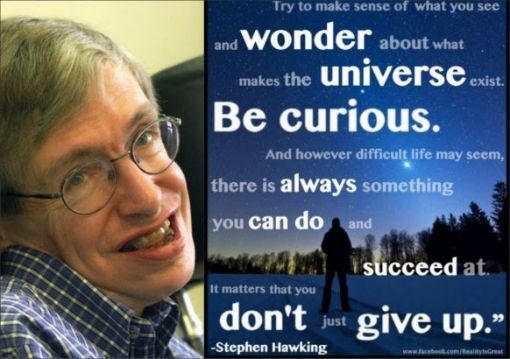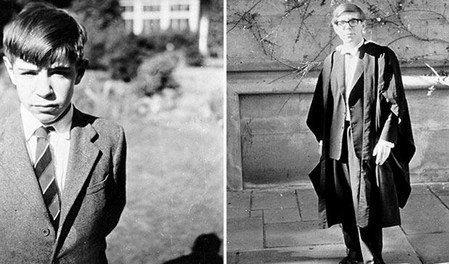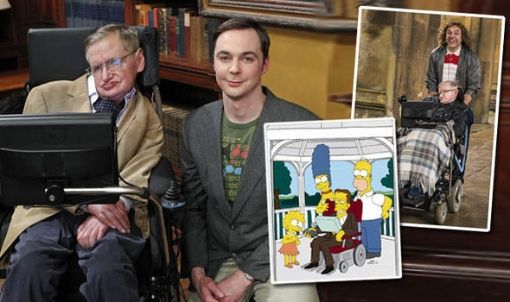
Very sad news today...
Stephen Hawking, the brightest star in the firmament of science, whose insights shaped modern cosmology and inspired global audiences in the millions, has died aged 76.
For fellow scientists and loved ones, it was Hawking’s intuition and wicked sense of humour that marked him out as much as the fierce intellect that, coupled with his illness, came to symbolise the unbounded possibilities of the human mind.
Hawking was driven to Wagner when he was diagnosed with motor neurone disease in 1963 at the age of 21. Doctors expected him to live for only two more years. But Hawking had a form of the disease that progressed more slowly than usual. He survived for more than half a century.
Those who live in the shadow of death are often those who live most. For Hawking, the early diagnosis of his terminal disease, and witnessing the death from leukaemia of a boy he knew in hospital, ignited a fresh sense of purpose. “Although there was a cloud hanging over my future, I found, to my surprise, that I was enjoying life in the present more than before. I began to make progress with my research,” he once said.

Embarking on his career in earnest, he declared: “My goal is simple. It is a complete understanding of the universe, why it is as it is and why it exists at all.” Hawking’s run of radical discoveries led to his election in 1974 to the Royal Society at the young age of 32. Five years later, he became the Lucasian professor of mathematics at Cambridge, arguably Britain’s most distinguished chair, and a post formerly held by Isaac Newton, Charles Babbage and Paul Dirac, one of the founding fathers of quantum mechanics.
But it was A Brief History of Time that rocketed Hawking to stardom. Published for the first time in 1988, the title made the Guinness Book of Records after it stayed on the Sunday Times bestsellers list for an unprecedented 237 weeks. It sold 10m copies and was translated into 40 different languages. Nevertheless, wags called it the greatest unread book in history.
“I regard the brain as a computer which will stop working when its components fail,” he said. “There is no heaven or afterlife for broken-down computers; that is a fairy story for people afraid of the dark.”
He spoke also of death, an eventuality that sat on a more distant horizon than doctors thought. “I’m not afraid of death, but I’m in no hurry to die,” he said. “I have so much I want to do first.” What astounded those around him was how much he did achieve.

He lectured at the White House during the Clinton administration – his oblique references to the Monica Lewinsky episode were evidently lost on those who screened his speech – and returned in from Barack Obama. His life was played out in biographies and documentaries, most recently , in which Eddie Redmayne played him. He appeared on The Simpsons and . He delivered gorgeous put-downs on . “What do Sheldon Cooper and a black hole have in common?” Hawking asked the fictional Caltech physicist whose IQ comfortably outstrips his social skills. After a pause, the answer came: “They both suck.”
He leaves his three children, from his first marriage to Jane Wilde, and three grandchildren.
He definitely lived an extraordinary life under the most difficult conditions and found a way to make a lasting impact on the world in a way that very few people could ever imagine to achieve over several lifetimes.
He will be missed.
No comments:
Post a Comment